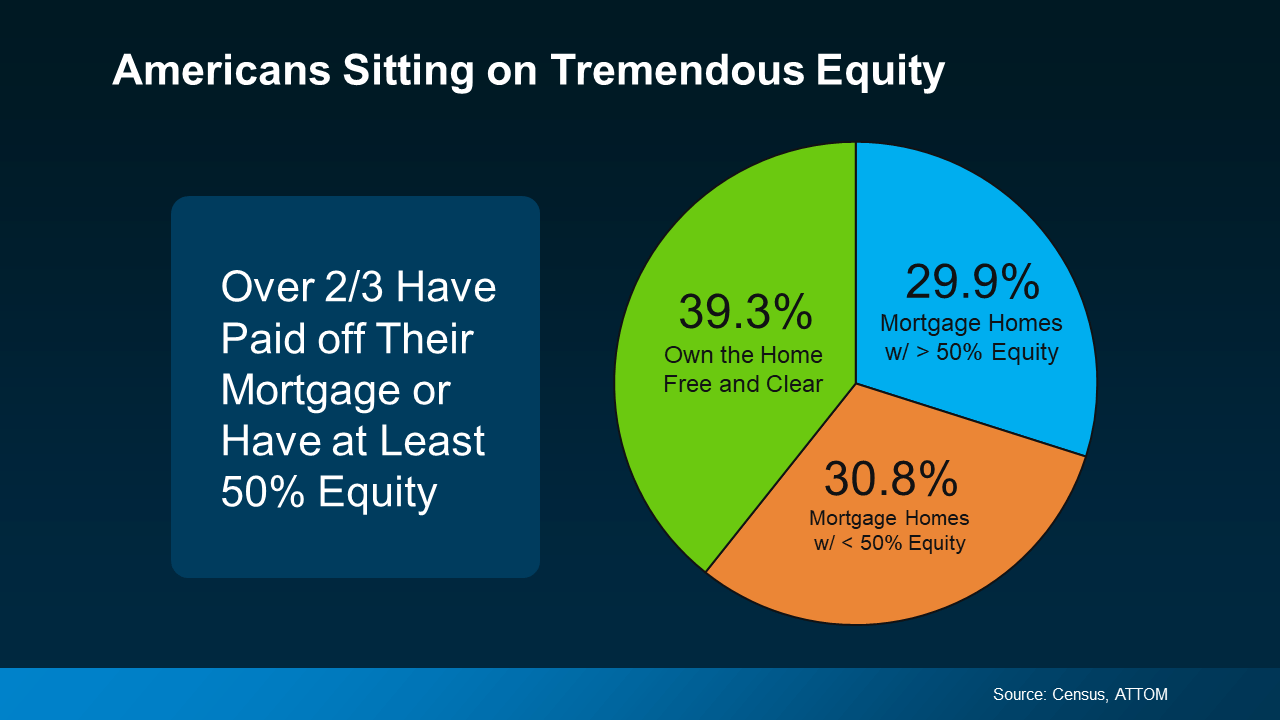Unlocking Your Home’s Potential: What Every Homeowner Should Know About Equity
Are you thinking about selling your home? Understanding your home equity is crucial to unlocking the financial possibilities for your next move. With the dramatic rise in home prices over recent years, many homeowners are discovering they have far more equity than they initially thought.
Here’s a comprehensive guide to understanding home equity and how it can influence your real estate decisions.
What Is Home Equity and Why Is It Important?
Defining Home Equity
Home equity represents the portion of your property that you actually own. It’s calculated as the difference between your home's market value and the remaining balance on your mortgage. For instance:
- Market Value of Your Home: $400,000
- Remaining Mortgage Balance: $200,000
- Your Equity: $200,000
This $200,000 is your home equity, and it can be a powerful asset when considering selling or purchasing a new home.
Current Equity Trends
According to recent data from the Census and ATTOM, many homeowners are enjoying significant equity. More than two-thirds of homeowners either fully own their properties or have at least 50% equity. This trend underscores a promising return on investment for those looking to sell.
How to Evaluate Your Home Equity and What to Do Next
Steps to Determine Your Home Equity
To understand your home’s equity, follow these steps:
-
Get an Accurate Home Valuation: Start by getting a current market valuation of your property. This can be done through an appraisal or a comparative market analysis provided by a real estate agent.
-
Find Out Your Mortgage Balance: Review your mortgage statements or contact your lender to determine how much you owe on your loan.
-
Calculate Your Equity: Subtract the remaining mortgage balance from your home’s market value. This will give you a clear picture of your home equity.
Consulting with Professionals
To ensure you make informed decisions, consider consulting with:
-
A Real Estate Agent: An experienced agent can provide a detailed market analysis and help you understand how your equity impacts your selling strategy.
-
A Financial Advisor or Tax Professional: These experts can offer insights into the financial implications of selling your home, including tax consequences and how to best utilize your equity.
Leveraging Your Home Equity for Your Next Move
Using Equity to Enhance Your Financial Position
Once you know how much equity you have, you can use it strategically:
-
Down Payment for a New Home: Use your equity as a down payment on a new property. This can make it easier to secure a mortgage and potentially lower your interest rate.
-
Pay Off Debts: Consider using some of your equity to pay off high-interest debts, improving your overall financial health.
-
Invest in Home Improvements: If you’re planning to sell, using equity to enhance your current home can increase its market value and lead to a higher selling price.
Final Thoughts: How to Proceed with Confidence
Understanding your home equity is a critical first step in the selling process. With home prices rising, your equity is likely higher than ever, offering you increased financial flexibility.
To navigate this process successfully, work with real estate professionals who can help you maximize your investment and plan for your future. If you’re ready to explore how much equity you have and how it can benefit your next home purchase, let’s connect and start this exciting journey together.












